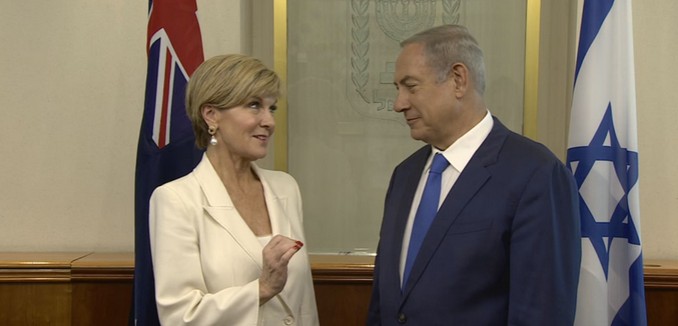Australia would have voted against last week’s anti-Israel resolution at the United Nations Security Council had it been given the opportunity, the country’s foreign minister said in a statement on Thursday.
Australia is not on the Security Council and therefore could not vote on the resolution, which criticized Israeli presence in the West Bank and eastern Jerusalem, including the Old City. But Foreign Minister Julie Bishop stated that “in voting at the UN, the Coalition government has consistently not supported one-sided resolutions targeting Israel.” She urged both Israel and the Palestinian Authority to refrain from damaging actions and “resume direct negotiations for a two-state solution as soon as possible.”
The position of the Liberal Party-led Australian government is that the status of territories that Israel captured in the 1967 war should be decided only by direct bilateral negotiations. This is consistent with the 1995 Interim Agreement between Israel and the Palestine Liberation Organization, which deemed those lands subject to “permanent status” negotiations.
Bishop said in an interview with the Times of Israel in January 2014 that West Bank settlements should not be referred to as illegal under international law. “I don’t think it’s helpful to prejudge the settlement issue if you’re trying to get a negotiated solution. And by deeming the activity as a war crime, it’s unlikely to engender a negotiated solution,” she said. “The issue of Israeli settlements should be determined in the course of the current US-brokered peace talks.” Those talks ended a few months later when Palestinian Authority President Mahmoud Abbas refused to accept an American-proposed framework agreement.
Other members of the Australian government also support the idea that the territories captured by Israel are not occupied territory. Attorney General George Brandis stated in June 2014 that Australia would no longer use “occupied” to describe eastern Jerusalem. Shortly afterwards, Australian ambassador to Israel Dave Sharma clarified that Australia viewed the West Bank similarly and would not use “occupied” to describe it anymore. As a result, Arab states threatened to boycott Australia.
[Photo: IsraeliPM / YouTube ]




